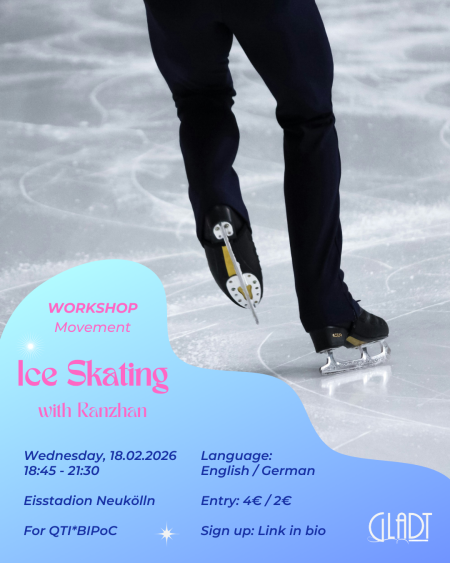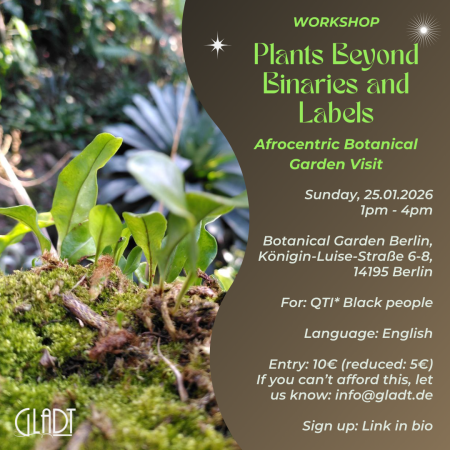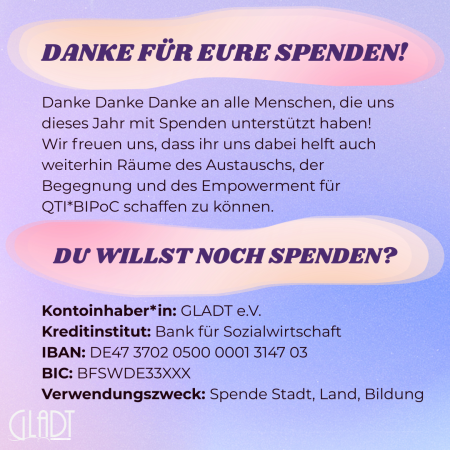About us
GLADT is an organization of black, indigenous and persons of color lesbians, gays, bisexuals, Trans, Inter and queers in Berlin. We are involved on different levels against racism, sexism, trans- and homophobia, ableism, and other forms of discrimination.
A special focus of our work is on the topics of multiple discrimination and intersectionality, meaning the overlap and interactions of different forms of discrimination and their specific resulting experiences.
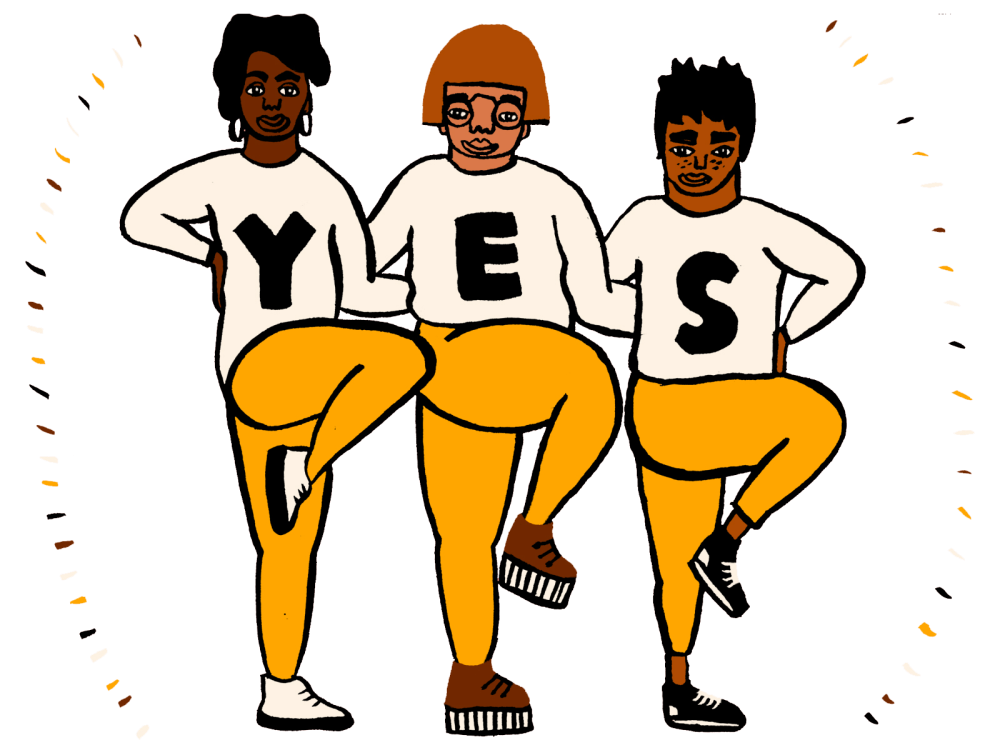
Our understanding of black and people of color
When we talk about “black”, “white” and “of color” here and in our work, we never mean biological characteristics of individual people or groups of people. Such homogenizable groups have never existed and do not exist today. Nevertheless, supposed commonalities are created based on social inequality, which puts some people (groups) at an advantage and others at a disadvantage. With “black”, “white” and “people of color”, we therefore refer to the social, political, legal (...) opportunities for participation or classifications in a racist system that distributes resources and access to them unequally and turns some forms of difference into social inequality. It is the collective experiences of exclusion from education, work, housing and other important social goods that lead to common ground in the struggle for equal rights. An overview of the political use of these perspectives can be found in the following texts, among others:
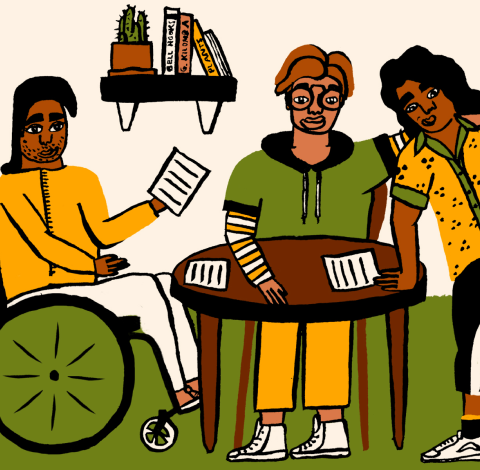
Values & History
GLADT has a long and eventful history that began in the late 1990s and has initiated and/or accompanied many debates on «Queer» and «of Color» in Berlin. The following terms describe GLADT and our work best:
-
1990s
The Berlin Türkgay group, which emerged at the end of the 1990s, developed into the GLADT association by 2003.
-
2001
The attacks of September 11, 2001 and the subsequent rapid rise in anti-Muslim racism made it necessary to deal with “intersectionality” in practice.
-
2003
Foundation of GLADT. Dealing with topics such as: Gender Identity as well as racism and nationalism.
-
2004
Another important milestone was the founding of the Migration Council Berlin. At the time, this was the only umbrella organization of migrant organizations in Germany.
-
2008
Foundation of GLADT. Dealing with topics such as: Gender Identity as well as racism and nationalism.
